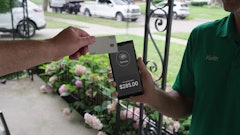
Selling a lawn care business can be a profitable endeavor, but it's not without its challenges. Many business owners make common mistakes that can delay the sale, reduce the final sale price or even derail the transaction altogether. If you're planning to sell your lawn care business, understanding these pitfalls and how to avoid them can make the process smoother and result in a higher sale price. Here are some of the most common mistakes to watch out for.
Neglecting proper financial documentation
One of the most significant mistakes is failing to have accurate and detailed financial records. Prospective buyers want to see a clear picture of your business's financial health, including profit and loss statements, tax returns and cash flow reports for the past three to five years. Incomplete or inaccurate records can raise red flags and deter potential buyers. Before listing your business for sale, ensure your financials are up-to-date and properly organized. Consider working with an accountant to prepare a comprehensive financial package that reflects the true profitability of your business.
Overlooking the importance of curb appeal
In the lawn care and landscape industry, appearance is everything. The state of your equipment, vehicles and premises can significantly impact a buyer’s perception of your business. A well-maintained fleet and neatly organized premises convey professionalism and care. Conversely, neglected or outdated equipment can suggest a lack of attention to detail or hidden costs for future replacements. Before selling, invest time in cleaning, repairing and possibly upgrading your equipment and property to ensure they are in the best possible condition.
Not understanding the market value
Overpricing or underpricing your business can both be detrimental. Overpricing can scare away serious buyers, while underpricing may leave money on the table. A common mistake is basing the price solely on revenue without considering other factors like customer base, market conditions, growth potential and profitability. Conduct a thorough business valuation to determine a fair market price. Engaging with a professional business broker can help you accurately assess your business’s worth and establish a competitive yet realistic asking price.
Failing to prepare for due diligence
Buyers will conduct due diligence to verify the information provided about your business. This process often involves scrutinizing financial records, customer contracts, equipment leases and more. Failing to prepare for this stage can cause delays or jeopardize the deal. Be proactive by organizing all necessary documents in advance, including operational procedures, customer lists, supplier agreements and any relevant legal paperwork. The more transparent and prepared you are, the smoother the due diligence process will be.
Ignoring customer and employee transition plans
Customers and employees are vital assets to a lawn care business, and their retention can significantly impact the sale's success. Many sellers fail to plan for a smooth transition, risking losing key customers or employees. Develop a transition plan that includes communication strategies for informing your customers and employees about the sale once the closing has taken place. Assure them of continuity and explain any changes they might experience. This can help maintain stability, reduce uncertainty and preserve the business’s value.
Attempting to handle the sale alone
Selling a business is a complex process that requires expertise in multiple areas, including finance, negotiation, legal matters and marketing. Many owners make the mistake of attempting to manage the sale on their own, underestimating the amount of time, effort and skill involved. Engaging a professional business broker who specializes in lawn care or service-based businesses can be invaluable. A broker can help you navigate the complexities, reach a broader pool of qualified buyers and ultimately negotiate the best possible deal.
Failing to maintain business performance
Once the decision to sell is made, some owners make the mistake of becoming complacent or less focused on daily operations. However, buyers will closely examine your business’s performance leading up to the sale. A decline in revenue, customer satisfaction or service quality can reduce your business's value or scare away potential buyers. Continue to operate your business as if you are not selling, maintaining or even improving performance to present it in the best possible light.
Not having a clear reason for selling
Prospective buyers will inevitably ask why you are selling the business. Having a vague or unconvincing reason can create doubts about the business’s viability. Be prepared with a clear, honest explanation that makes sense. Common reasons might include retirement, relocation, health reasons or a desire to pursue other opportunities. A solid reason can build trust and confidence with potential buyers.
Underestimating the time required to sell
Selling a lawn care or landscaping business doesn’t happen overnight. It can take months, or even longer, to find the right buyer and close the deal. Many sellers underestimate this time frame, leading to frustration or rushed decisions. Plan ahead and be patient. Understanding that the process takes time can help you avoid making hasty choices that might negatively affect the sale's outcome.
Not planning for life after the sale
Lastly, many sellers focus so much on the selling process that they neglect to plan for what comes next. Consider how the sale will impact your lifestyle, finances and future plans. Will you retire, start another business or pursue other interests? Having a plan for life after the sale can help you approach the process with a clearer mind and a stronger negotiating position.
Selling a lawn care business involves numerous steps and considerations. Avoiding the common mistakes covered in this article can help ensure a successful sale that meets your financial and personal goals. Preparation, patience and the right professional guidance are key to maximizing the value of your business and achieving a smooth transition to new ownership.














![Gravely Pro Turn Mach One My23 Dsc03139 Edit 1200x800 5b2df79[1]](https://img.greenindustrypros.com/mindful/acbm/workspaces/default/uploads/2025/10/gravely-pro-turn-mach-one-my23-dsc03139-edit-1200x800-5b2df791.BucBnDoN22.jpg?ar=16%3A9&auto=format%2Ccompress&fit=crop&h=135&q=70&w=240)




